
Curtea Veche was built as a palace or residence during the rule of Vlad III Dracula in 1459. Archaeological excavations started in 1953, and now the site is operated by the Muzeul Municipiului București in the historic centre of Bucharest, Romania.

Dealul Spirii is a hill in Bucharest, Romania, upon which the Palace of the Parliament is now located.
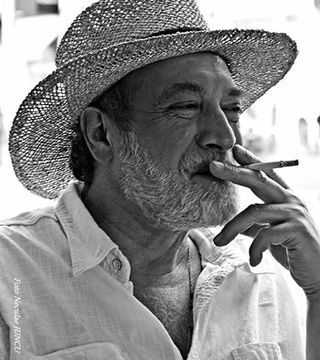
Leonard Oprea is a Romanian novelist, poet, and essayist. In the late 1980s, he wrote two books of fiction that were banned by the Communist regime and gained him repute among dissidents. Following the 1989 Revolution, the books were published but did not attract significant notice during the political upheaval of the time. He left Romania for the United States in 1999, after which the pair of previously banned works was once again released. In the 2000s, he wrote the fictional series Theophil Magus, and by 2020 this series included 17 separate titles. Piero Scaruffi considers his work "Cele Nouă Învățături ale lui Theophil Magus despre Magia Transilvană/ The Nine Teachings Of Theophil Magus On Transylvanian Magic" (2000) among the ten best novels in the Romanian language.

Victor Neumann is a Romanian historian, political analyst, and professor at the West University in Timișoara. He is a well-known specialist in the recent cultural and intellectual histories of Eastern and Central Europe. Much of his work deals with Conceptual History, history of political thought and theory of history. As of October 2013, he is Director of the Timișoara Art Museum.

Nicholas Michael de Roumanie Medforth-Mills, formerly called Prince Nicholas of Romania, is the eldest child and only son of Princess Elena of Romania and Robin Medforth-Mills. As a grandson of King Michael of Romania, he was third in line to the defunct throne of Romania according to a new family statute enacted in 2007, that also conferred the title of a "prince of Romania" on him which was removed in 2015. The statute and the titles it confers have no standing in present Romanian law.
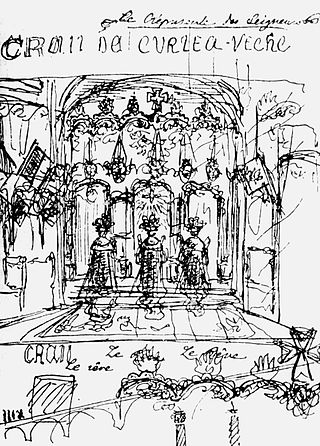
Craii de Curtea-Veche is a novel by the inter-war Romanian author Mateiu Caragiale. Published in 1929, it took the author more than two decades to complete, and constituted his only major work. It has been translated into English by Sean Cotter as Rakes of the Old Court (2021) and by Cristian Baciu as Gallants of the Old Court (2011).
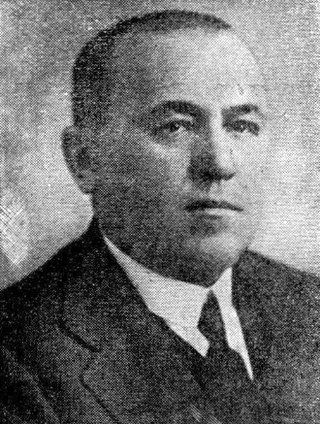
Emil Hațieganu was a Romanian politician and jurist, a prominent member of the Romanian National Party (PNR) and of its successor, the National Peasants' Party (PNȚ); he was physician Iuliu Hațieganu's brother. Before his arrest, he was an honorary member of the Romanian Academy.

Haig Acterian was a Romanian film and theater director, critic, dramatist, poet, journalist, and fascist political activist. Alongside Mihail Sebastian and Camil Petrescu, he is considered one of the major Romanian theater chroniclers in the interwar period.
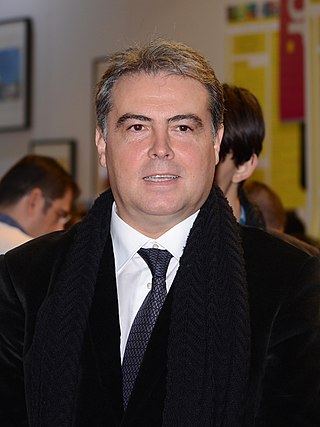
Adrian Mihai Cioroianu is a Romanian historian, politician, journalist, and essayist. A lecturer for the History Department at the University of Bucharest, he is the author of several books dealing with Romanian history. He is also noted for his contribution as co-author of a high school textbook.
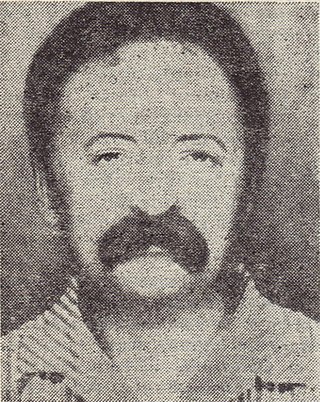
Leonid Dimov was a Romanian postmodernist poet and translator born in Izmail, Bassarabia.
The Băița mine is a large open pit mine in the northwest of Romania in Bihor County, close to Ștei, 123 km (76 mi) southeast of Oradea and 737 km (458 mi) northwest of the capital, Bucharest. Băița represents the largest uranium reserve in Romania having estimated reserves of 90 million tonnes of ore grading 0.5% uranium metal.
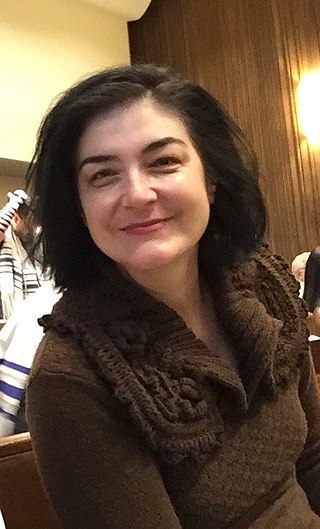
Lavinia Stan is a professor of political science at St. Francis Xavier University in Canada. She currently lives in Montreal.
Cornel Mihai Ungureanu is a Romanian novelist and journalist.

Cristian Bădiliță is a theologian, essayist, translator and contemporary Romanian poet.
Irina Negrea is a Romanian literary translator, journalist and editor.
Vasile Moldoveanu is a Romanian tenor.
Iosafat Snagoveanu was a Wallachian revolutionary and monk of the Romanian Orthodox Church.
Events from the year 1948 in Romania. The year saw the formalisation of the Romanian People's Republic.

The Curtea Veche Church is a Romanian Orthodox church located at 33 Franceză Street in the Lipscani quarter of Bucharest, Romania. It is dedicated to the Feast of the Annunciation and to Saint Anthony the Great.
This page is based on this
Wikipedia article Text is available under the
CC BY-SA 4.0 license; additional terms may apply.
Images, videos and audio are available under their respective licenses.













